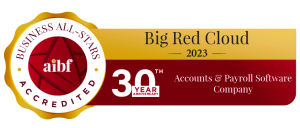How to make your mark
There are many reasons why people set up businesses. It might be a reaction to being made unemployed or the appeal of being able to do something you enjoy and/or are good at. Some entrepreneurs are attracted by the prospect of ‘being their own boss’ whereas others see it as a way of getting rich.
In other cases, though, the intention may be to create something that can be handed down to future generations – in other words, a legacy. This may sound like something only wealthy people can aspire to, but even the smallest business can have a positive impact on the people and organisations it comes into contact with.
Walking the walk…
It is easy to start out with good intentions that fall by the wayside as you become consumed by the demands of running a business. You must not only set out your commitments to suppliers, customers and employees but also act as a role model by observing these values every day, otherwise no one else will take them seriously.
A commitment can be as simple as identifying the pain points of your target audience and explaining how your product or service can reduce or remove these frustrations.
Any business where the brand is also the family name should be particularly conscious of the importance of creating a positive image (‘you can trust us because we are a family like you’).
What do you care about?
When identifying a cause or causes to support, the best starting point is to find something you are passionate about. This will make it easier to maintain your interest as well as convincing others that your intentions are genuine, which is particularly important for younger people.
The influence of millennials on business is growing all the time. They are prepared to give their custom to enterprises they see as being aligned with their values and many are willing to directly support business legacy initiatives by donating to charities supported by companies they trust.
Positioning your business as one that helps to create responsible suppliers, for example, will become part of your brand and since this is reflected in the overall price of your product, in effect the legacy pays for itself.
The cost of a social conscience
Most small businesses already support community projects, so you may already be a philanthropist without even realising it! This support tends to be provided on an ad hoc basis for projects that are valued by suppliers, customers or staff.
However, if you intend to take a more structured approach it is important to understand your financial position so you can decide how much support you can afford to provide. You could even take this a stage further by analysing whether supporting a specific project led to an increase in business.
It is not always possible to determine exactly how much (if any) commercial benefit is derived from supporting community projects. However, the financial data available from a cloud-based accounting solution such as Big Red Cloud will give you a better idea of how philanthropy affects your bottom line.





